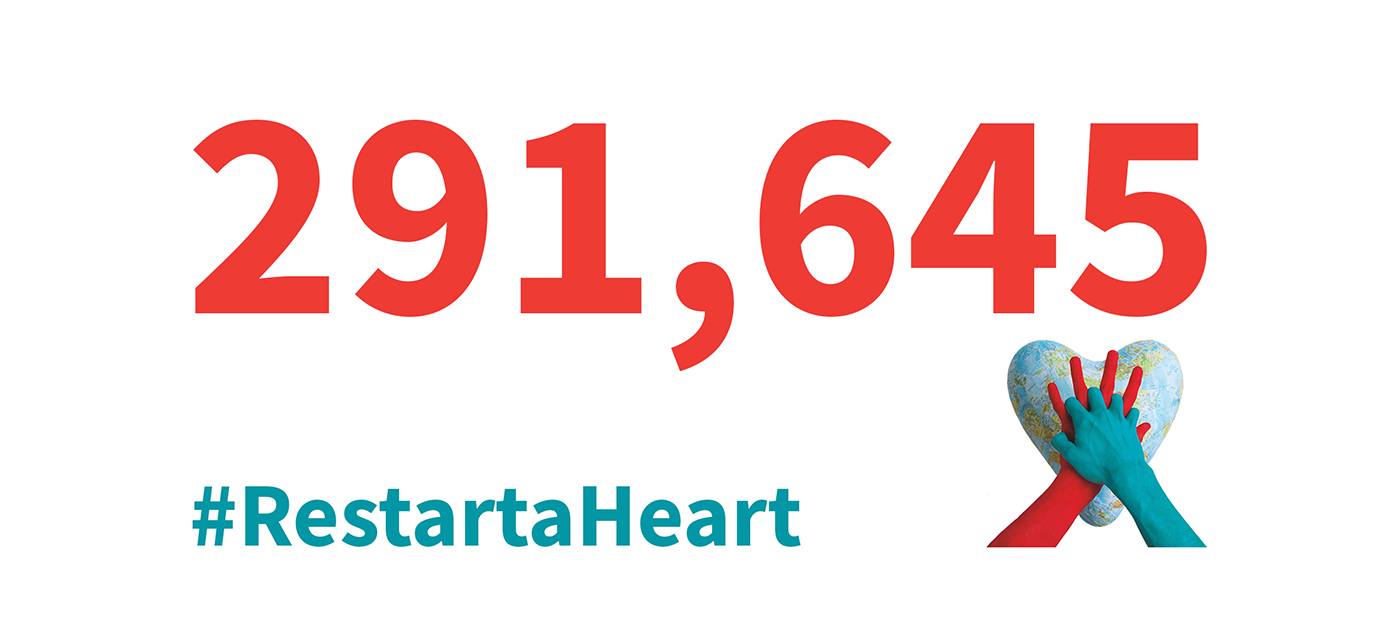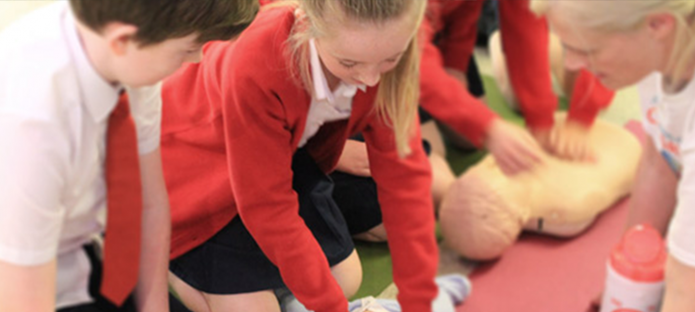
A record number of people have been trained in life-saving CPR for the sixth annual European Restart a Heart day, as events across the UK saw 291,645 people taught the simple skills needed in order to become the lifesavers of the future.
Everybody in society should have the opportunity to learn basic lifesaving skills to aid the chain of survival, as not receiving training is a major barrier to the likelihood of bystander intervention in out of hospital cardiac arrests.
Only 31% of people in the UK who haven’t had professional training on a CPR course are likely to help someone who has collapsed and stopped breathing. This reluctance to intervene has tragic outcomes. Currently, fewer than 1 in 10 people survive an out-of-hospital cardiac arrest in the UK.
With increased education we can improve the chances of survival from out of hospital cardiac arrest. Campaigns like Restart a Heart day are a key component of driving that education and placing it at the heart of communities.
On and around 16 October 2019 schools, charities, emergency services, volunteers and private trainers came together to teach cardiopulmonary resuscitation (CPR) and defibrillation to children and adults, led by Resuscitation Council UK, the British Heart Foundation, St John Ambulance, the British Red Cross and Yorkshire Ambulance Service.
Dr Andy Lockey, Resuscitation Council UK Vice-President and World Restart a Heart Co-Lead said:
“The hundreds of thousands of people now trained in CPR as a result of this initiative will lead to more people than ever being given their best chance of survival from cardiac arrest. This is a fantastic result for a campaign that truly puts people at the heart of the matter, and it will make a difference in life and death situations.”

